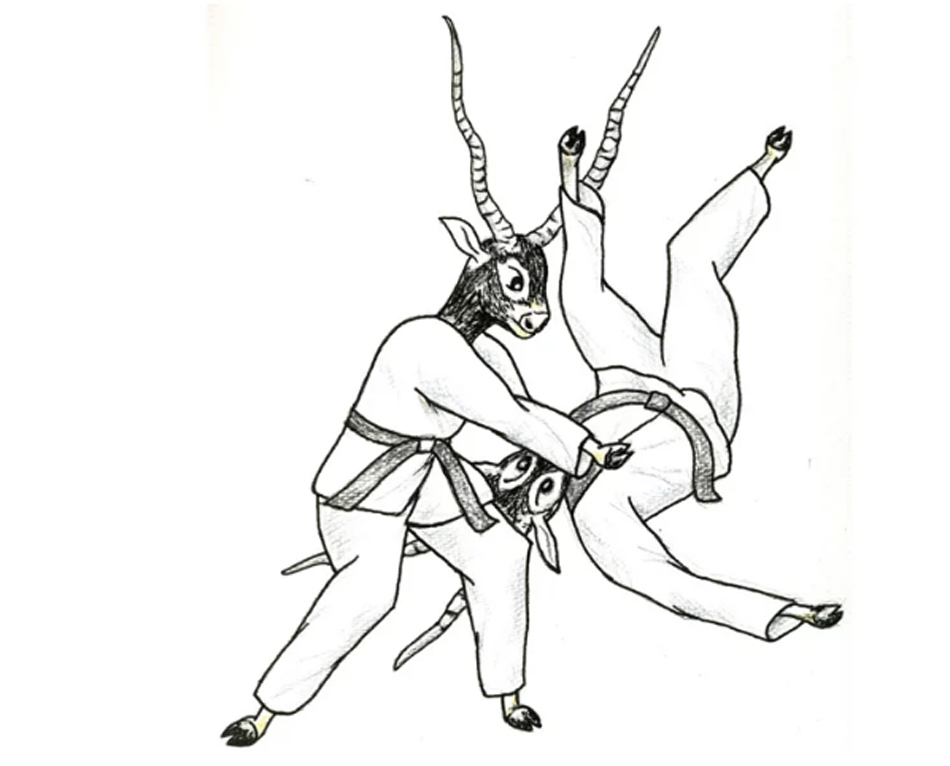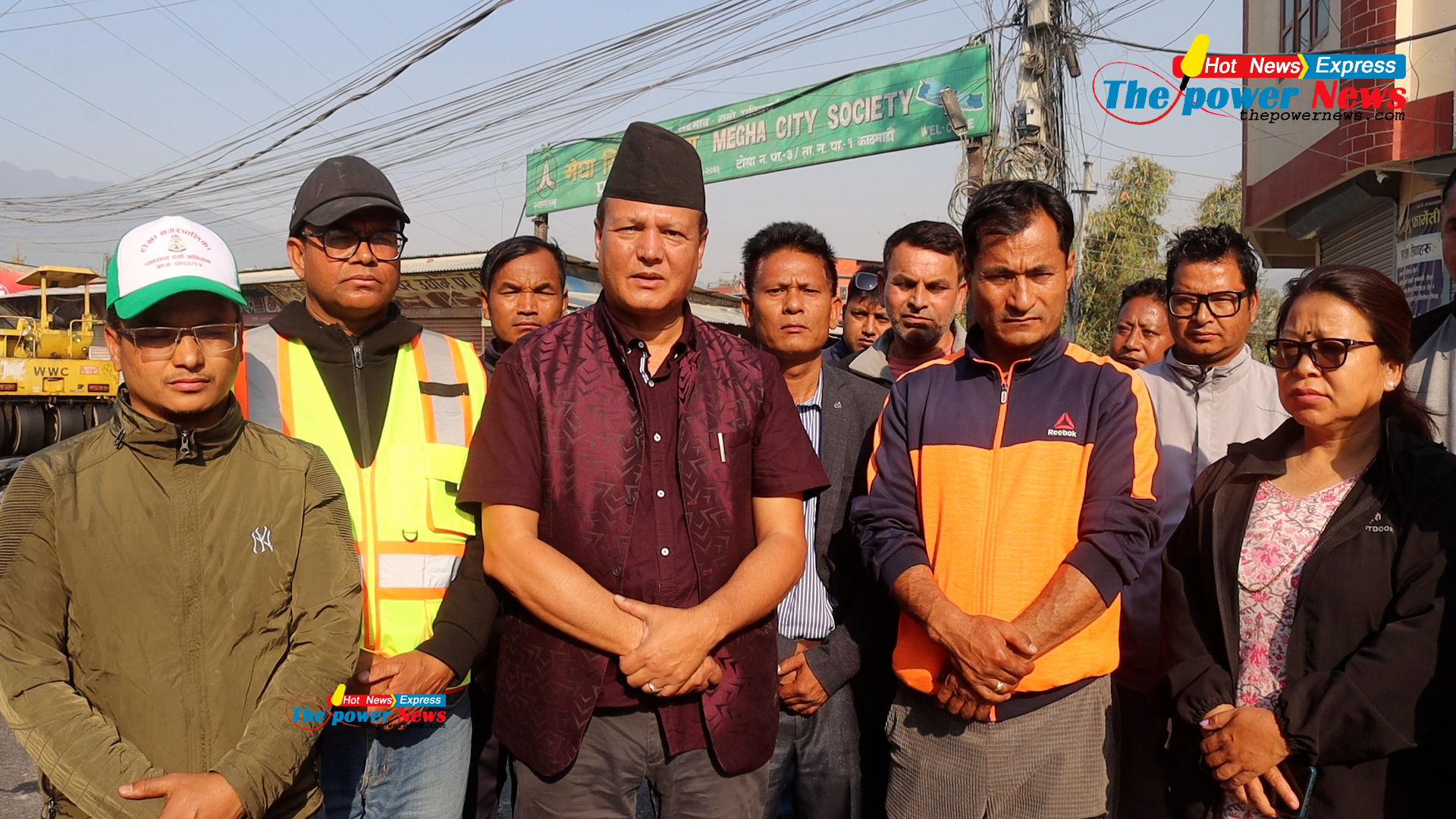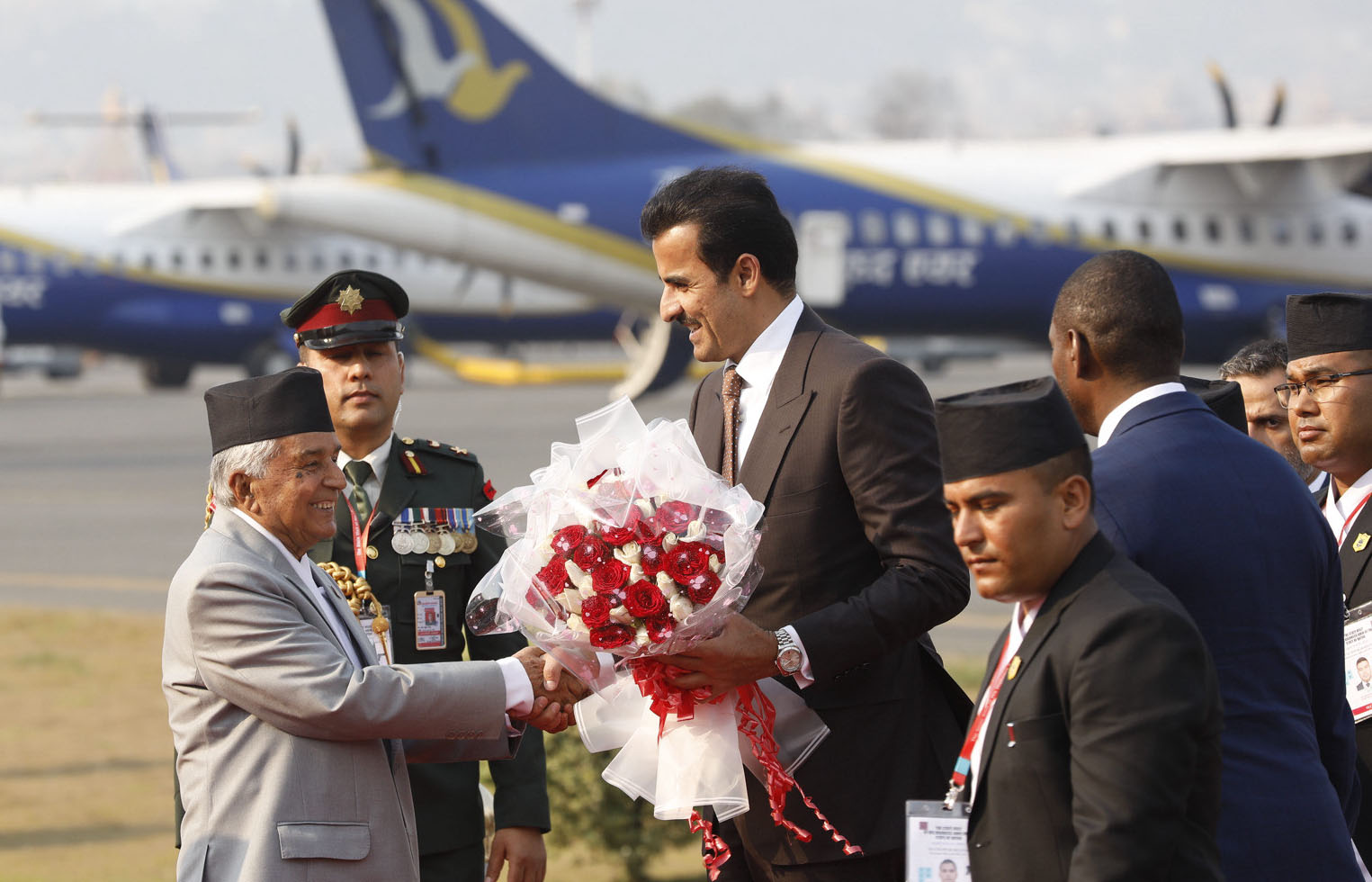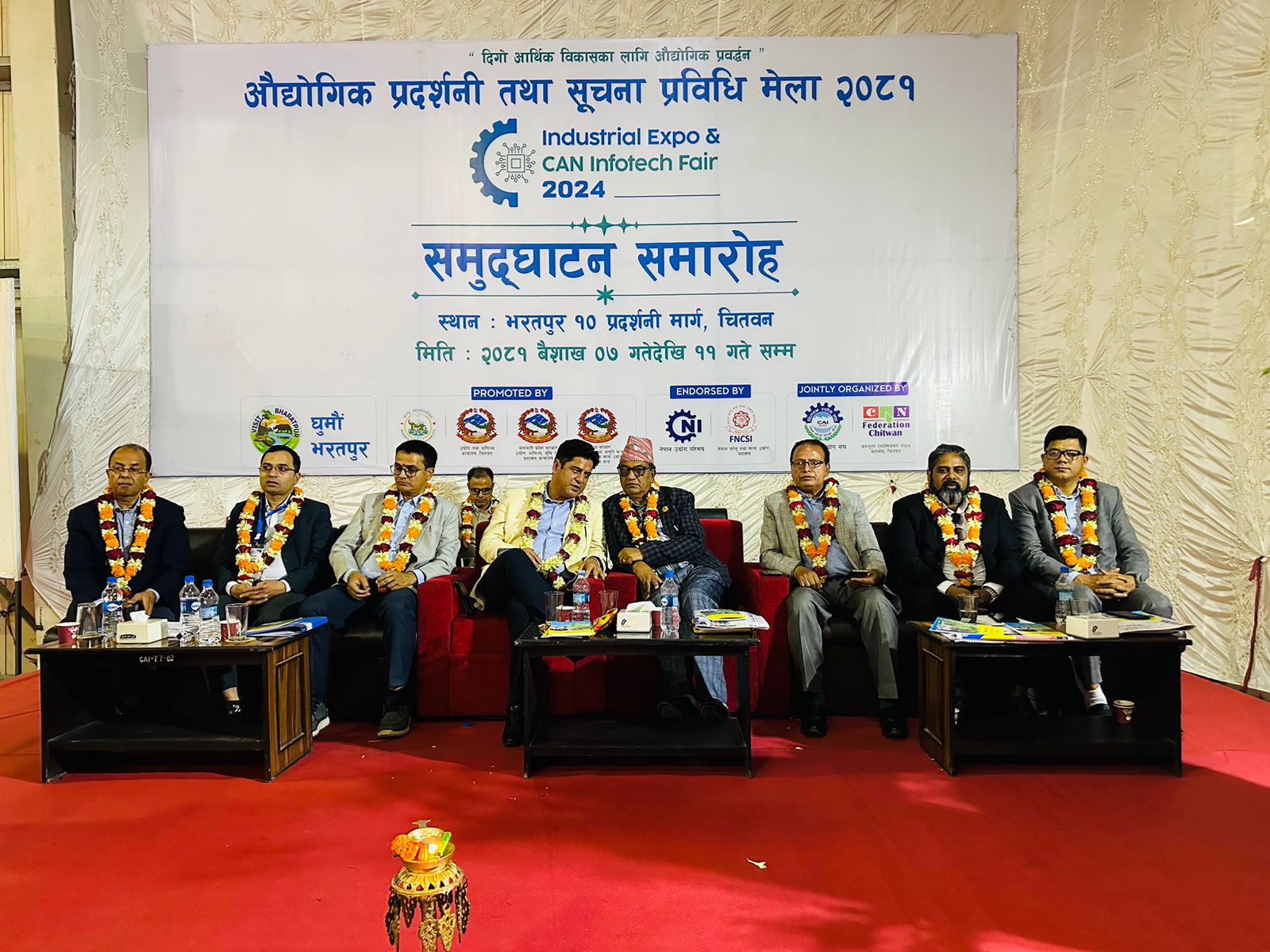आन्तरिक बजारमा सुनको माग घटिरहेका बेला प्रतितोला ७६ हजार ५ सय पुगेपछि बुधबार सुनको मूल्यले नयाँ उचाईं छोयो। सुनको भाउ अझै बढ्दै जाने पनि विश्लेषण भइरहँदा बजारमा माग ७५ प्रतिशतसम्म घटेको छ।
संक्रमणकालीन हाम्रो अर्थतन्त्र र सुनको बजारको स्थिति एकदमै नराम्रो छ। यसपटकको ज्वेलरी एक्स्पो लागि चुनौती र अवसर दुवैले अन्तरिक बजारबाट बाहिर निस्किएर अन्तर्राष्ट्रिय बजारमा नयाँ उचाईं छोयो।
According to China State Railway Group Co., Ltd. (CSRC), more than 300,000,000 train fares have been sold after the sale of tickets for the Spring Festival travel launched on December 12, 2019.
Thanks to the nationwide promotion of electronic tickets, travelers can use their ID cards to enter and exit train stations instead of using paper tickets for boarding, according to the CSRC.
The upcoming Spring Festival holiday is a traditional time for family reunions, while the travel rush will last for 40 days from January 10 to February 18.
Thursday saw a single-day record of 16.33 million tickets sold for train journeys on January 31, the first working day after the week-long Lunar New Year holiday, the China’s railway operator said.
About 14.43 million tickets were sold via the official 12306 online booking services on Thursday, accounting for 88.4 percent of the total.
Popular trains of the day are return trips to major cities like Beijing, Shanghai and Guangzhou, with tickets almost sold out.
With New Year’s Eve around the corner and the majority of Americans spending up to $200 each on the occasion per year, the finance experts today released the report on 2019’s Best Places for New Year’s Eve Celebrations. To help Americans ring in the new year without breaking the bank, the experts compared the 100 biggest cities across 28 key metrics. The data set ranges from legality of fireworks to average price of a New Year’s Eve party ticket to forecaster precipitation for Dec. 31.
२२ मंसिर, काठमाडौं : १३औं दक्षिण एसियाली खेलकुद (साग)अन्तर्गत सातदोबाटोमा सञ्चालन भइरहेको पौडीमा आज ८ स्वर्णका लागि प्रतिस्पर्धा हुनेछ । जुडोको प्रतिस्पर्धा आजदेखि शुरु हुँदैछ । जुडोमा महिलातर्फ ४८ केजी मुनि, ५२ केजी मुनि, ५७ केजी मुनि र ६३ केजी मुनि समूहमा प्रतिस्पर्धा हुनेछ । यस्तै पुरुषमा ६० केजी मुनि ६६ केजी मुनि र ७३ केजी मुनि तौल समूहमा प्रतिस्पर्धा हुनेछ । सातदोबाटोमा सुटिङ, टेनिस र स्क्वासले पनि निरन्तरता हुनेछ । बक्सिङमा आज पनि सेमिफाइनल राउण्डको खेल हुनेछ । जसमा नेपालका ५ खेलाडीले खेल्दैछन् । कीर्तिपुरस्थित कभर्डहलमा सुटिङ, टेनिस र स्क्वासले पनि निरन्तरता पाउनेछ । स्क्वासमा आज महिला र पुरुषका फाइनल खेलहरु हुनेछन् ।
AI Chief Technology Officer, Grazia Vittadini, said that European aerospace giant is currently working on a single-pilot aircraft model to meet rising air travel demand. Demand for air travel doubles every 15-20 years, which results in more noise, emissions, fuel consumption and a higher requirement for pilots. The single pilot model is being developed with the help of automation technologies such as artificial intelligence (AI).
“While the human component will continue to be accountable for strategic decisions, AI will take care of the routine tasks, taking away workload from the pilot so that his/her attention is focused. There will be AI apps for aiding activities, such as image recognition of runways or signs at the airport and conversion of speech to text, as communication plays a significant part of the pilot’s workload,” Vittadini said.
Airbus will start testing the single-pilot model with freighter aircraft and expects this to become a reality over the next decade or so. Vittadini said issues regarding passenger safety will be enhanced with these new technologies.
Airbus’s move to do away with two pilots comes on a day when Boeing announced that it has scaled back the use of automation to make fuselage sections for its 777 jetliners amid reports of reliability issues, and returned to having human mechanics do some of the work.
Airbus, which spends about €2 billion annually in research and development (R&D), is also working on a complex hybrid-electric aircraft demonstrator, E-Fan X. In the test aircraft, one of the four jet engines will be replaced by a two megawatt electric motor, which is roughly equivalent to the power of 10 medium-sized cars. The electric propulsion unit is powered by a power-generation system and battery.
Eggs are really common breakfast food that keeps falling in and out of favor with doctors. We keep hearing that eating eggs is good for you as it is full of protein and could be an alternative to eating meat. On the other hand, some doctors recommend avoiding eggs as they might influence your cholesterol levels as they are full of fats. Here is what actually will happen when you eat one egg a day.

Source of protein
Eggs are a great source of protein which is almost fully (98%) absorbed by our body. The biggest advantage is that it is very low in calories (roughly 70 kcal per egg). Obviously, a boiled egg is preferred as no extra oils are used to prepare it. Protein keeps you full longer and is necessary if you have a long day in front of you. That’s why an egg is a food common for breakfast. Bodybuilders prefer raw eggs as well but remember that a cooked egg is absorbed better. Eggs are a source of vitamins and minerals which support your bodily function. Even one egg contributes significantly to the daily requirement of Vitamin A, riboflavin, Vitamin B12, phosphorus, zinc and Vitamin D. All of these are necessary for normal body function and normally are very low in the modern diet. Some of them heavily contribute to eye health and reduce the risk of eye-related diseases.
Hair is made primarily of protein keratin. It can be preserved for thousands of years under the right conditions (like the 5300-year-old iceman Ötzi that got frozen in a glacier). His body, hair, and clothes were all intact, whereas in a wetter and warmer climate the hair survives for a few weeks only.
There are many different hypotheses as to why we lost all body hair, but the one on our heads remained. Some think it all happened as a kind of cooling mechanism that allowed our brain to develop further and become larger, while other scientists believe it was left on our heads to regulate body temperature when travelling long distances.

Straight, curly, brown, blond, red – there are so many hair types that it’s easy to ignore the fact that our hair is actually quite weird. Yes, you read that right! We’re the only mammals who have hairless bodies, with hair covering only our head. Even if we find the answer to why we look the way we look, the reason behind why we have so many hair types would still remain a mystery! Scientists are only starting to turn their inquisitive gazes towards human hair, so here’s what we have so far. Our ancestors might have shifted to hunting, but still there were predators out there that could easily wipe them from the face of the Earth. That’s why they had to hunt in the heat when all other predators were resting, hence, they lost bodily hair to evolution, having some left for heat regulation.
MODERATOR: Hey, everybody. Thanks for being here. Today we have the great pleasure of having a couple of our senior leaders with us to talk about a Rewards for Justice announcement that we’re going to cover a little bit more at the end.
Just in terms of the ground rules, there —
SENIOR STATE DEPARTMENT OFFICIAL TWO: And a designations announcement.
QUESTION: Embargoed till the end?
MODERATOR: Say again?
QUESTION: Embargo till end?
MODERATOR: Yeah, let’s just embargo till the end. Let’s wait till it’s all over with and then feel free to do whatever. And again, thank you, gentlemen, for being here, [Senior State Department Official One] and [Senior State Department Official Two] is also here with us.
So, gentlemen, please take it away. Just indicate if you have a question.
Matt, you have anything?
QUESTION: No, no.
MODERATOR: Okay. Shaun?
QUESTION: Could I just pursue the question about the Sahel? And in the wake of the killing of Maychou by the French forces, with this designation, I mean, how much do you see the threat right now from the – from radical Islamist forces in the Sahel and in Mali and in the neighboring countries? I mean, do you think there’s been a dent on it because of this military action led by the French? Or do you see it as something that’s still – that’s still mushrooming?
SENIOR STATE DEPARTMENT OFFICIAL TWO: Well, it’s a trend we’re concerned about. Al-Qaida has an active presence in West Africa. ISIS has an active presence in West Africa. And we are working very closely with countries in the region, as well as allies in Europe to counter this threat effectively.
I was just out in Senegal a week ago, two weeks ago, and this was a topic that was very high on the list of priorities for our Senegalese partners, making sure that we’re using law enforcement and border security and designations tools to prevent the violence and instability that we’re seeing in Mali from spreading into the littoral regions of West Africa. We can’t afford to have this contagion spread. So we’re working very closely with our partners to pressure these ISIS and al-Qaida affiliates.
QUESTION: How much of a role does UN Peacekeeping have to play on that? And is this building committed to funding UN Peacekeeping?
SENIOR STATE DEPARTMENT OFFICIAL TWO: We’re pursuing very much an all-of-the-above approach. This administration has emphasized the need for greater sharing of national security burdens, so we’re looking for partners that have the capability and the wherewithal to join us in this effort.
MODERATOR: Next.
QUESTION: Do you view that the Rewards of Justice Program is working, and that’s why you’re putting money in this program?
SENIOR STATE DEPARTMENT OFFICIAL ONE: Yeah, we do. We do. We think it’s a tool that has been brought out and saw new life in it. We’ve – this administration has given it a chance to grow in a sense of more money, more people to talk about it. I think it’s a great tool that has atrophied for a while and now it’s picking up, and very well so.
MODERATOR: Humeyra.
QUESTION: Since we have you, I’d actually like to ask you about the new ISIS leader, if that’s okay. A week has passed. I’m wondering if you guys have new findings about where he’s coming from, who he is. And also, Turkey says that they have captured some family members. Have you seen that? Are these, according to you, genuine, authentic people?
SENIOR STATE DEPARTMENT OFFICIAL TWO: So I don’t have anything to update you on with respect to the new ISIS leader, beyond what we’ve said before. He is probably not going to enjoy his promotion. We intend to subject him and any other ISIS leader to unrelenting pressure, using all the tools at our disposal. That was true of previous ISIS leadership; that’s going to be true of future ISIS leadership. We’re also tracking the Turkish reports to have taken into custody al-Baghdadi’s – I believe it was his sister.
QUESTION: Sister, yeah.
QUESTION: And wife.
QUESTION: There’s one, like his son or something.
SENIOR STATE DEPARTMENT OFFICIAL TWO: Right.
QUESTION: And then brother-in-law.
SENIOR STATE DEPARTMENT OFFICIAL TWO: Yeah. We’re working with the Turks on this question. We’re looking into the reports. If true, it’s another victory in our efforts to take ISIS fighters, leaders, and enablers off the battlefield and ensure that they’re held accountable for the crimes they’ve committed.
QUESTION: I think Trump tweeted about it yesterday.
QUESTION: He seems to have accepted Erdogan’s claim. You have not?
SENIOR STATE DEPARTMENT OFFICIAL TWO: As the President has said, per his tweet, and I have nothing to add to it.
QUESTION: But do you guys believe that they – have you confirmed it?
QUESTION: Well, does that mean that you guys have accepted it?
SENIOR STATE DEPARTMENT OFFICIAL TWO: We’re looking into it.
QUESTION: Well, that means no, that you haven’t.
SENIOR STATE DEPARTMENT OFFICIAL TWO: Matt, come on. We’re looking into it.
QUESTION: Look, we expect to get, you know, straight answers from you guys. And I realize that you don’t want to say anything that contradicts what —
SENIOR STATE DEPARTMENT OFFICIAL TWO: I also don’t want to talk about intelligence in front of reporters, which I’m sure you can appreciate, Matt.
QUESTION: Well, that’s – well, I can. But if you’re saying that you’re talking to the Turks, that means you have not yet confirmed it.
SENIOR STATE DEPARTMENT OFFICIAL TWO: Don’t put words in my mouth, Matt.
QUESTION: Have you confirmed it or not?
SENIOR STATE DEPARTMENT OFFICIAL TWO: You have my answer to your questions.
MODERATOR: Moving on.
QUESTION: To stay on ISIS and sort of the path forward, are you seeing —
SENIOR STATE DEPARTMENT OFFICIAL TWO: I guess Matt’s done?
QUESTION: No, no, no.
SENIOR STATE DEPARTMENT OFFICIAL TWO: All right. Okay.
QUESTION: I’ll be back. I’ll be back.
QUESTION: Are you seeing perhaps a greater decentralization in the wake of Baghdadi’s death? And are you concerned particularly about the regional affiliates?
SENIOR STATE DEPARTMENT OFFICIAL TWO: We have seen a longer-term trend line towards a more diffused, dispersed ISIS threat. We’ve decimated the core in Syria and Iraq and we’re also turning our attention to the branches and networks and affiliates around the world. ISIS is an increasing threat in places like Afghanistan, in places like West Africa, Southeast Asia. There’s an active presence there as well.
That was true irrespective of the pressure that we brought to bear on ISIS leadership in Syria. But now that we’ve completed the destruction of the caliphate, we will have an increasing focus on dismantling the networks and branches globally.
QUESTION: Are there particular affiliates that you’re most concerned about? Or —
SENIOR STATE DEPARTMENT OFFICIAL TWO: Yeah. Well, West Africa is certainly a concern, ISIS West Africa, ISIS Greater Sahara. We’re concerned about ISIS Khorasan in Afghanistan. ISIS recently declared a new province in East Asia. These are all areas that we’re concerned about, and we’re working very closely with our partners in those regions to boost their capabilities, using tools like law enforcement, like designations, like border security, and so on.
MODERATOR: Who’s next?
QUESTION: One on Iraq and Lebanon. Some reports say that ISIS or other terrorist groups will benefit from the demonstrations in Iraq and Lebanon. Are you aware of that, and do you think – is it possible that they will benefit from the demonstrations in these two countries?
SENIOR STATE DEPARTMENT OFFICIAL TWO: I don’t really have anything to add on that, beyond what the Secretary has previously said. The United States supports peaceful right of assembly and expression. And we call on all governments around the world to be responsive to the needs of their civilians. We also have to be mindful of the risks that terrorists might try to use various geopolitical developments as pretexts to further their own malign agendas. So that’s something we’re certainly always on the lookout for, not just in the context of recent developments.
QUESTION: Thank you.
SENIOR STATE DEPARTMENT OFFICIAL TWO: Yes.
QUESTION: Forgive me if this is an ignorant question. Is there already a reward out for the new leader, the one who replaced al-Baghdadi, of ISIS?
SENIOR STATE DEPARTMENT OFFICIAL TWO: Not to my knowledge.
QUESTION: Why not?
SENIOR STATE DEPARTMENT OFFICIAL TWO: Well, he’s only been in office for what, a week? Give us some time.
SENIOR STATE DEPARTMENT OFFICIAL ONE: Yeah.
QUESTION: He’s still a threat though, right?
SENIOR STATE DEPARTMENT OFFICIAL ONE: Yeah, and the organization —
QUESTION: You don’t know enough about him?
SENIOR STATE DEPARTMENT OFFICIAL TWO: And the organization that he leads is subject to withering financial sanctions. Those remain in place regardless of who sits atop the pyramid.
QUESTION: Can I ask a question about the DS training center?
SENIOR STATE DEPARTMENT OFFICIAL TWO: Sure.
QUESTION: And this is a – this is the site in Virginia that’s the subject —
SENIOR STATE DEPARTMENT OFFICIAL ONE: Blackstone, Virginia, yeah.
QUESTION: — the subject of some congressional interest. There was a fight between Virginia and Georgia?
SENIOR STATE DEPARTMENT OFFICIAL ONE: West Virginia, and also Georgia. So —
QUESTION: But that was obviously resolved —
SENIOR STATE DEPARTMENT OFFICIAL ONE: Resolved, absolutely.
QUESTION: And I remember when Senator Kaine talked about it.
SENIOR STATE DEPARTMENT OFFICIAL ONE: Correct.
QUESTION: But it’s opening next week.
SENIOR STATE DEPARTMENT OFFICIAL ONE: Actually yes, the 14th of November there’s a ribbon-cutting ceremony. We’re actually having some of the pool here to go down and see it.
QUESTION: Yeah, yeah, we got that. I think that some people are going. But is this – do they – what do they do? Shoot, blow stuff up down there? What —
SENIOR STATE DEPARTMENT OFFICIAL ONE: So it’s a 1,350 acre range within Fort Pickett. It is the premier training center for counterterrorism in the nation right now. Once you see it, you’ll see why it is that. There are nine race tracks, to include to – over the dirt tracks and over basically SUV training, how to roll and get out of a rolled-over SUV. There is skidpans. There is ranges to shoot. There is a fire as a weapon house. Since Benghazi, we have literally made sure that all our Foreign Service go through what a smoke-filled room looks like in the house so you can get out alive. There is all the hard skills we can think of in trying to keep people off the X.
QUESTION: Okay, so this is not just for DS? This is going to be for —
SENIOR STATE DEPARTMENT OFFICIAL ONE: No, no, not – far from it, absolutely. This is a Foreign Affairs Security Training Center, FASTC. We want every Foreign Service officer to go through this. In fact, it’s going to be mandated that this is going to happen.
QUESTION: For all of them, or just those who are going to a high-threat post?
SENIOR STATE DEPARTMENT OFFICIAL ONE: Going to a high-threat, but also going to posts normally. And so every five years, they have to re-up again to be certified to go. We want people now to go to embassies that understand the threat and how to react to it, given the training that they have.
QUESTION: Just to clarify that, so every single Foreign Service officer, like if you’re posted to Oslo, you’d still have to go through this? Or just —
SENIOR STATE DEPARTMENT OFFICIAL ONE: Well, right now we’re doing through the high-threats. But we actually will, yes.
QUESTION: Cool. I hope we can make it next week.
SENIOR STATE DEPARTMENT OFFICIAL ONE: Yeah, no, we’d love to have you. We’re really proud of it. I mean, it’s —
QUESTION: You should charge admission, let people in, let the public in.
STAFF: You all should sign up. I understand that our RSVP list isn’t very robust.
QUESTION: Oh, no?
SENIOR STATE DEPARTMENT OFFICIAL TWO: Yeah, you gotta go.
STAFF: It’s an opportunity to sign up and go.
SENIOR STATE DEPARTMENT OFFICIAL TWO: This is worth a try.
STAFF: Wednesday.
QUESTION: How far away is it?
STAFF: It is three hours.
SENIOR STATE DEPARTMENT OFFICIAL ONE: It’s a day commitment.
SENIOR STATE DEPARTMENT OFFICIAL TWO: Three hours.
STAFF: It’s three hours, but we’ll make sure you get lunch when you get down there.
SENIOR STATE DEPARTMENT OFFICIAL TWO: We’ll get you back in time for the D-ISIS ministerial on Tuesday – Thursday. Yes.
SENIOR STATE DEPARTMENT OFFICIAL ONE: Yes, exactly, yes.
STAFF: (Inaudible.)
SENIOR STATE DEPARTMENT OFFICIAL ONE: Yeah. The reason why it’s so far out is because we needed land to build on. And unfortunately, in West Virginia the land was not there for us.
QUESTION: Any more you can say on rewards potentially given out for Baghdadi’s death?
SENIOR STATE DEPARTMENT OFFICIAL TWO: That is – I can’t talk about it, but I know that they are going to review it, absolutely, given the situation —
QUESTION: Can you even say whether someone has tried to claim it?
SENIOR STATE DEPARTMENT OFFICIAL TWO: No, no, no.
QUESTION: Well, then I’d like to. (Laughter.)
SENIOR STATE DEPARTMENT OFFICIAL TWO: Exactly.
QUESTION: I have about as much proof as the President does that Baghdadi’s sister was caught by the Turks to back my claim.
MODERATOR: One of you have a question?
QUESTION: Not another one.
MODERATOR: Okay. Anybody else? Okay.
QUESTION: I have a quick question.
MODERATOR: Yeah.
QUESTION: North Korea came out and said that your country terror report that you put out last week was a sign of U.S. hostile policy towards North Korea. Do you have any reaction?
SENIOR STATE DEPARTMENT OFFICIAL TWO: Our policy to North Korea is not secret. We expect the Government of North Korea to live up to the commitments that its leaders made to the President, which is full, complete, and verifiable denuclearization.
North Korea, as you know, was designated as a state sponsor of terrorism by President Trump and then Secretary Tillerson in 2017. And we have nothing further to add to the record at this time on that question.
MODERATOR: Anybody else? Okay. Thanks so much.
The things we see is made up of reflected light from the objects we are looking at. However, the cornea at the front of the eye is curved meaning it bends this light as it enters the eye. When the lights reaches the retina at the back of the eye, the image is upside down! Our brain flips the image back round the right way allowing us to see the image perfectly.
An Austrian professor named Theodor Erismann conducted an experiment using some goggles worn by his assistant that made the assistant see things upside down – amazingly within a week his brain adapted to this and flipped the image the right way round again!

It’s true, 80% of each of our eyes is made from a jelly-like liquid called vitreous humour. This liquid is vital for the eye’s everyday functions and in keeping the eye healthy. Filling the space between the lens and the retina of our eyes, Vitreous Humour is around 99% water and 1% proteins, salts, sugars and collagen. Filling the eyes empty space means that the liquid keeps the eyes shape and protects the very fragile retina at the back of the eye.

November 21, 2019 is yet another new extension dategranted by the Italy Minister of Economic Development, (MED), Stefano Patuanelli, to Alitalia Airline for the presentation of bids. The authorization of the MED has set 2 conditions: the direct intervention of the commissioners and an immediate comparison with the bidders. The Lufthansa proposal, therefore, opens. On the board of directors on October 23, the German airline decided to wait for the meeting scheduled for Monday, October 28, in Rome between the airline’s top management, government representatives, and commissioners, to verify point by point the real situation of the Italian carrier.
On the table, therefore, remain the hypotheses of a commercial agreement feared in recent weeks or even an offer of equity participation tied to certain conditions, first of all, a drastic reduction in personnel. While waiting for more certain news, even Delta Air Lines’ top managers want to understand the next moves of the German carrier to definitively express its willingness to increase participation from 10 to 15%, thus paying valuable additional economic resources in the new Alitalia’s coffers
At the current time, the Alitalia cash flow is extremely fluid, because some unknowns remain. This starts from the redundancies, since after the parliamentary question and the harsh note of the trade unions (asking for immediate explanations to the Mise about the news circulated in these hours that assumes 5,000 redundancies, mainly land personnel, in the absence of an immediate recapitalization of 2.5 billion euros).
This is an eventuality that sees the unions totally opposed, to the point of fearing a series of strikes and the hypothesis of a temporary “nationalization” of the airline for 6 months. The other issue relates to liquidity since the rumor seems confirmed that at the beginning of October less than 150 million euros would be left in the airline’s coffers and that, therefore, to ensure operations until the beginning of 2020, a further loan would be required of at least 400 million euros that the government could release with the “extraordinary measure” procedure. While Alitalia seems to be sailing in a stormy climate, new long-haul routes are scheduled. The Italian miracle keeps recurring.














